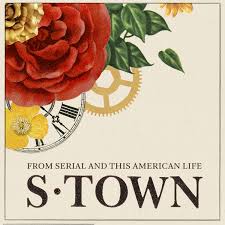By Colorado Review Editorial Assistant Dana Chellman
 Exactly fifteen hours after my thesis reading, I went for a casual thirteen-hour drive to Wisconsin. Armed with twenty dollars’ worth of snacks (peanut M&M’s for days), the last twelve hours of a thirty-hour audiobook (Diana Gabaldon’s Outlander series for the win), and multiple episodes from four different podcasts (Radiolab, My Dad Wrote a Porno, Missing Richard Simmons, and S-Town), I embarked on the solo trip. I had prepared all of this before the reading, because I didn’t want to leave too much time on the drive for solitary reflection—just in case I bombed.
Exactly fifteen hours after my thesis reading, I went for a casual thirteen-hour drive to Wisconsin. Armed with twenty dollars’ worth of snacks (peanut M&M’s for days), the last twelve hours of a thirty-hour audiobook (Diana Gabaldon’s Outlander series for the win), and multiple episodes from four different podcasts (Radiolab, My Dad Wrote a Porno, Missing Richard Simmons, and S-Town), I embarked on the solo trip. I had prepared all of this before the reading, because I didn’t want to leave too much time on the drive for solitary reflection—just in case I bombed.
I didn’t bomb. I was two minutes late because I waited until the last second to print my manuscript (grad lab closes at 7 p.m., y’all), and once I got to the podium, my practice and natural charm/utter fear of failure kicked in, and all went well. I felt good about the reading, many people shared positive reactions with me, and then I went for this drive and listened to the entire seven episodes of S-Town, which comes from the producers of Serial and This American Life. I cried multiple times per episode, in the car, by myself.
There are so many important things to talk about concerning the story of this podcast, but since it was just released last week, I don’t want to get into subject matter, because #spoilers. But since S-Town is a piece of nonfiction that is meant to be heard instead of read, like the version of the essay for my thesis reading, and since I had such a visceral reaction (re: multiple sob fests) while listening to S-Town, I’ve been chewing on the power of the spoken word as it pertains to my genre.
I often associate spoken word art only with poetry. But when I was revising my seventeen-page essay down to twelve pages, not only did I condense and cut, I also read out loud for flow, rhythm, and just the sound of the thing, and that editing paid off with comments (probably too nice) from a friend later saying it was “one of the best essays [they’d] ever heard.” It was hard to cut entire sections from what I thought was tightly woven, but the remaining scenes and exposition placed heavy emphasis on the feel of the essay, the confusion and frustration and fear and love in my relationship with my brother, who suffers from bipolar disorder.
So even though my audience didn’t learn about phrenology (one of the cut sections), they (hopefully) left with a feeling, lodged in their chest, of what it’s like to love someone with bipolar disorder. The space that opens up for those feelings and understandings and meanings to flow between people is a sublime one, and spoken word opens up a different kind of space than the written word does, as I experienced with S-Town.
The way that host Brian Reed stutters in certain parts; or when his voice cracks; or the accent of his subject, a man who has lived his whole life in rural Alabama; these all make the listening experience an extremely powerful one. While reading something may give you a more precise understanding of the information being shared, listening to it might impart a more complex and emotional understanding of that information’s meaning, and this is not unique to poetry. With some practice and emphasis placed on the power of our own essays when spoken, they can become forces of raw emotion that we never knew we could unleash, unfettered from the reading eye, entering the heart through the ear.